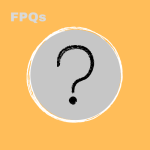What If You’re Not a Writer?

Finding Your First-Person Voice isn’t the usual writing or journalism course, so you may wonder if it applies to you. Throughout the lessons, I’ll highlight common anxieties and first-person questions – or what I call “FPQs.”
The Q&A format is meant to encourage your own questions as well. Let’s start with who the lessons are for.
Q. Why should I do these lessons?

Developing self-awareness is a skill that transfers to many areas of life. Journalists have much to gain from these lessons, but so do new writers and anyone who wants to express themselves with more confidence and individuality.
The lessons are geared toward personal nonfiction and storytelling rather than fiction writing. However, exploring and developing your own voice can be a stepping stone to creating convincing fictional characters.
Personal storytelling helps us make meaning of the world.
Writers live by their stories, but other professionals use storytelling to communicate, too, including medical workers, digital creators, salespeople, app designers, political activists, managers, and teachers. Personal storytelling matters because it helps us make meaning of the world and our communities.
See “Ten Takeaways” for the lessons in the box below. Specific tools and life skills will also be underscored in each lesson.[1]
Even experienced book authors can struggle with how much to say about themselves in a public venue. That’s why these “Lessons for Life” emphasize the writing process over a final product. Yet, depending on your writing goals, you’ll also have opportunities to stretch your first-person skills to create publishable stories.
Q. How long do the lessons take?
This is a self-paced series of activities you do on your own time. Each activity comes with suggested time or word limits, but you control the schedule.
A good rule of thumb is one lesson a week.
Still, I encourage you to complete the whole course in 4 to 6 weeks. A good rule of thumb is one lesson a week.
The lesson activities are designed to be fun and quick. In contrast with standard writing assignments that may seem daunting, these are meant to get the words flowing and to establish a writing routine that keeps you motivated.
Q. What if I’m terrible at grammar and spelling?
You won’t be graded or judged on what you write. While grammar and spelling do matter — I’d never say they don’t – I’ve found that focusing on them at the beginning of a writing journey can suck the life out of it.
Allow yourself to write freely.
The hardest thing about writing is getting started. The more you write, the better you get. Clichés like this don’t usually thrill me, but in this case, they’re worth repeating.
Once you’ve completed Finding Your First-Person Voice, see the “What’s Next?” section at the end for references to additional help with English language usage and prose style. But for now, allow yourself to write freely.
Q. But I’m not a writer – am I?
You can be. Writers aren’t all published professionals. Like you, they’re people with a story to tell and their own point of view.
Ten Takeaways
Finding Your First-Person Voice will help you:
- Explore who you are and how you view the world.
- Express yourself more effectively and authentically.
- Set writing goals for yourself.
- Develop a writing practice with rituals and routines.
- Discover your creative flow for generating new work.
- Document your journey as a writer.
- Extend your stories beyond words with multimedia.
- Make meaning of a messy world through writing.
- Connect your personal story with your community.
- Inspire yourself to keep telling your own stories.
- In case you need more nudging, read "5 Reasons Why Everyone Should Write" by Esther Han (Medium, March 21, 2019). ↵